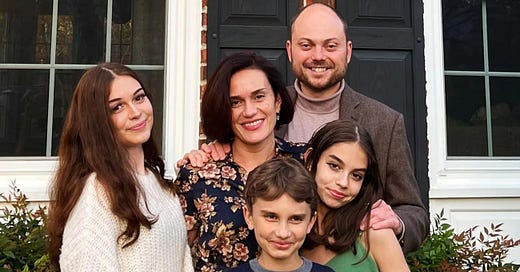Kara-Murza
We started the week here looking at someone brave enough to keep protesting and refusing to leave the place he loved, at the risk of being locked up forever. Some exiled political activists have such a profound belief in their cause that they are willing to leave everything behind and go back to the place where everything they have, their freedom in particular, is at risk. Russian opposition leader Alexei Navalny did that a few years ago when he returned to Russia and is now serving concurrent prison sentences while his health is steadily deteriorating thanks to the treatment meted out by the Putin managed Russian prison system.
This week we witnessed how Vladimir Kara-Murza received a twenty-five year prison sentence in Moscow, after being charged with treason and offering up criticism of Russia’s war in Ukraine. Kara-Murza is a dual British-Russian citizen who has long been active as a critic of the Putin regime and most recently was living in the USA with his family. There has been a lot of criticism about the British government not stepping up earlier to do something about Kara-Murza’s fate, notably by Bill Browder (he of the ‘Red Notice’ and Freezing Order’ fame). Kara-Murza himself was very clear about the bizarre trial and sentence and do read his comments, here. Russia is now back not to Soviet-style repression, but to 1930s Stalin-style purges.
This story sadly fits into the wider narrative on how authoritarian regimes crackdown on dissent globally, inflict maximum pain (like Navalny it is reported that Kara-Murza’s health has deteriorated), completely silence opposition with Western governments barely able to anything about it. Hopefully over time some deal can be made, but it is likely that with the high profile arrest of US journalist Evan Gershkovich there will be a ranking order in terms of prioritizing certain prisoners over others. Gershkovich is far less of a threat to Russia than Kara-Murza who in turn is probably not as important a dissident as Navalny. It will be a while before the latter two will see freedom. Think of them and their families in the meantime. The persecution of these activists is evil and brutal and is unlikely to stop for the foreseeable future.
Yom HaShoah
Yesterday was Yom HaShoah, the day Jews remember the Holocaust. It is important to note that this is different from International Holocaust Memorial Day which was established by the UN and falls on 27 January, the day that marks the liberation of Auschwitz. Israel picked another day and it pointedly selected a date that symbolizes armed Jewish resistance, which is the day the uprising in the ghetto of Warzaw began and usually falls in April. To me Yom HaShoah is the day to properly reflect and commemorate, the international one in January always feels like a sort of day of exoneration and atonement for all the nations that looked away while six million Jews were murdered.
This day however is a full day of remembrance in Israel, bringing traffic to a halt and even passengers on El Al, the national airline will stand up mid-flight and reflect on the worst mass murder ever inflicted on humanity. With the group of survivors becoming ever smaller there is more interest in this memorial day each year.
If you ever wonder what in general motivates Jews and in particular those located in Israel, just reflect on how the Holocaust is remembered there and how it is linked to that one event where those heading for the slaughter resolved to stand up. However futile it may have been at the time, the decision in Warzaw in the spring of 1943 to fight back was of crucial importance in Jewish history. The words ‘never again’ have a far deeper meaning for Jews than the many non-Jews who, despite their good intentions, take to social media on either of these two remembrance days. For the Jewish nation it means ‘never again, whatever the cost’.




